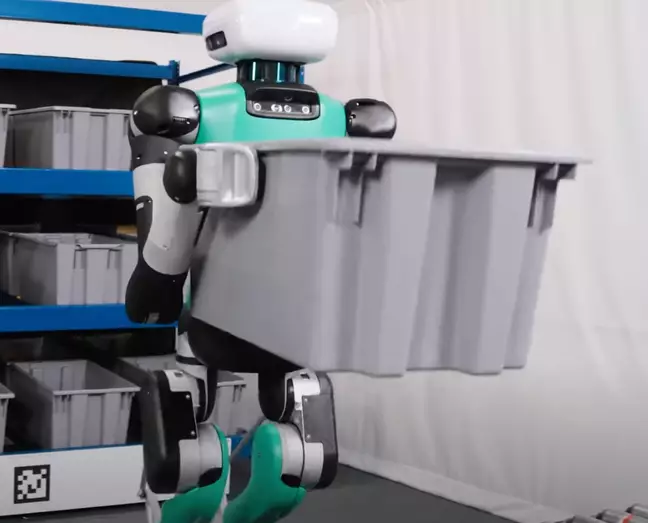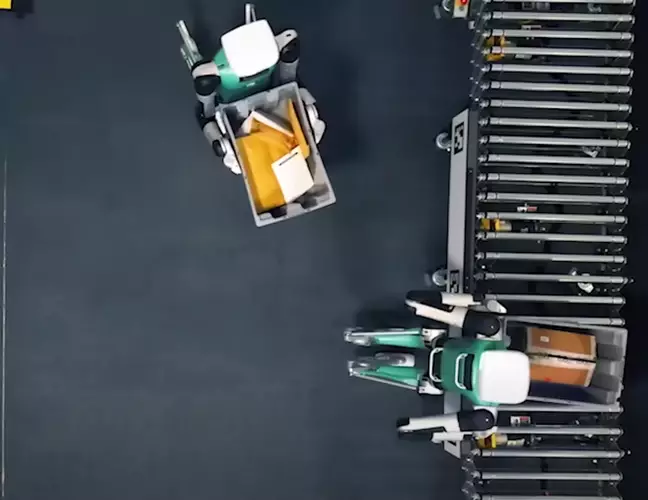There is a robot factory coming that will be able to produce 10,000 ‘humanoid’ robots annually, so if AI visuals alone make you nervous, turn away right away.
Anyone else picturing the iRobot scenario where they are all arranged in rows?
I’m not sure if that’s exactly how the new Agility Robotics facility will look, but when the ‘RoboFab’ factory opens later this year, the business will undoubtedly be able to start producing robots.
The company that created the bipedal robot Digit also created RoboFab, a human-sized robot with two LED “eyes” and the ability to perform “useful work safely in spaces designed for people.”
Damion Shelton, co-founder and CEO of Agility Robotics, commented on Digit’s accomplishments earlier this year: “Three years ago, we delivered the first commercially accessible bi-pedal robot with a human form factor suited for work.Multinational logistics organizations have since expressed a great deal of interest in Digit, and we have worked closely with them to understand how they intend to use Digit to enhance warehouse and supply chain operations.
“We kept those customer use cases in mind when designing the next generation of Digit.”

With the upcoming opening of its 70,000 square foot facility and the start of commercial humanoid robot mass manufacturing, the company is now developing its concepts further.
RoboFab, which is based in southeast Salem, Oregon, is close to other commercial centers including the Amazon Fulfillment Center. The factory’s construction has already started in advance of its anticipated opening in late 2023.
With the ultimate goal of enabling humans to be more human, Shelton said, “We built Digit to solve difficult problems in today’s workforce like injuries, burnout, high turnover, and unfillable labor gaps.”
The most significant achievement in creating new technology to improve society is being able to mass produce it at a level where it can have a substantial, widespread influence.
In the first year, Agility Robotics anticipates producing “hundreds of Digit robots, with the capacity to scale to more than 10,000 robots per year.”

RoboFab will employ more than 500 (human) people in Salem in addition to building workable robots.
Digit must have a place too, so the robot will operate in the new factory alongside its human coworkers, moving, loading, and unloading crates.
Customers who are a part of the company’s Agility Partner Program can anticipate receiving the first mass-produced Digits in 2024 before they become widely available in the market in 2025.











